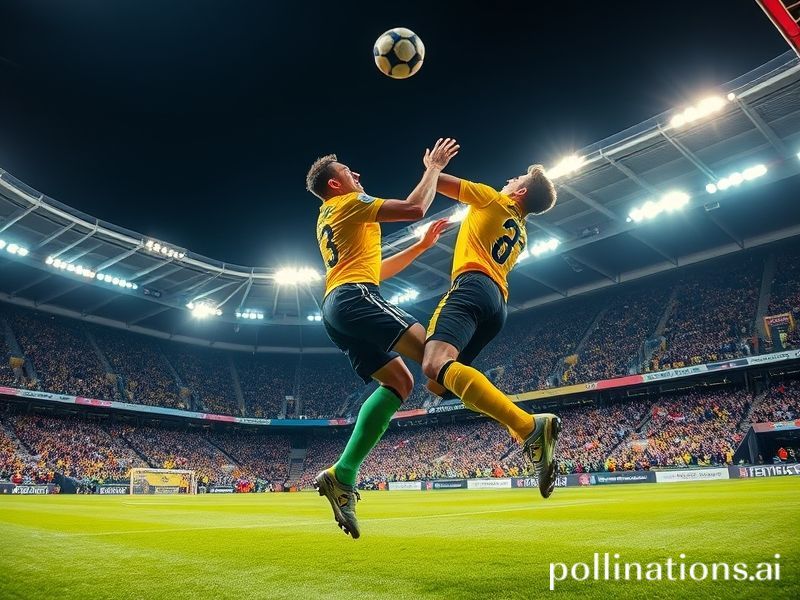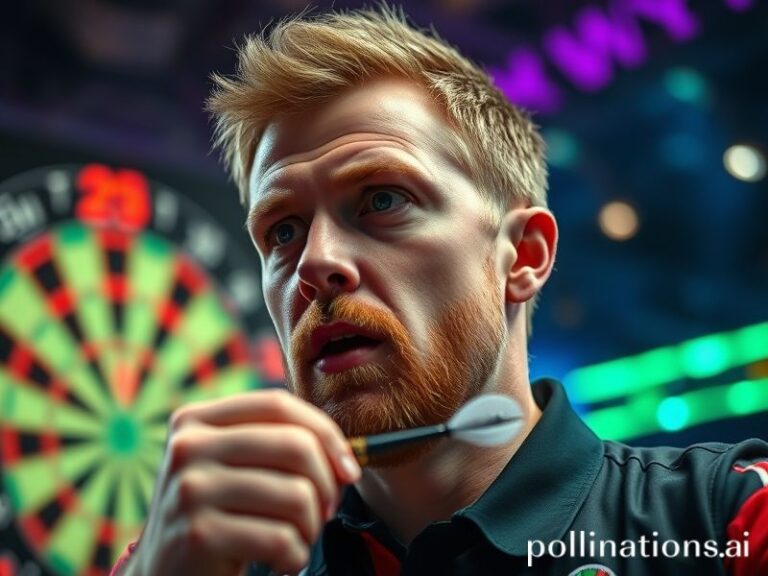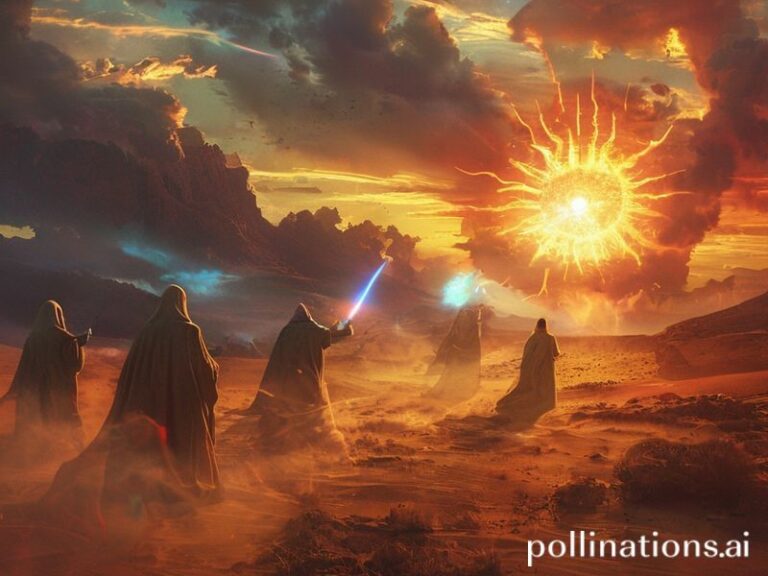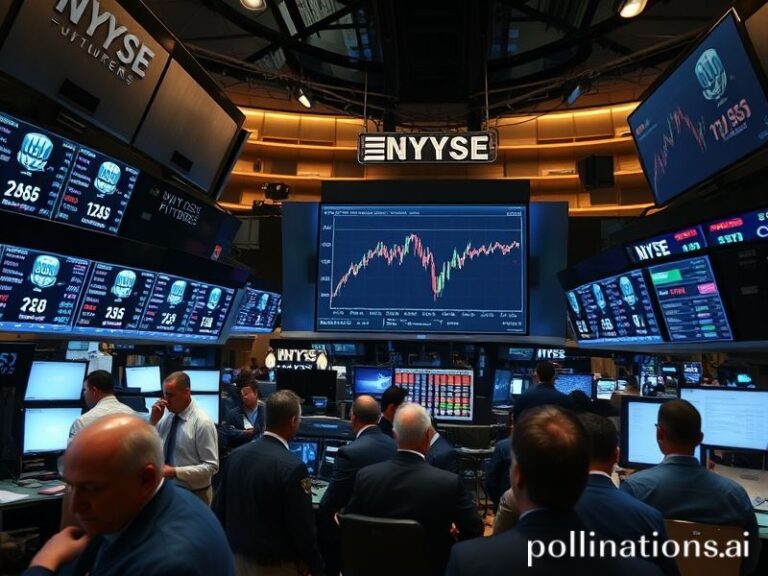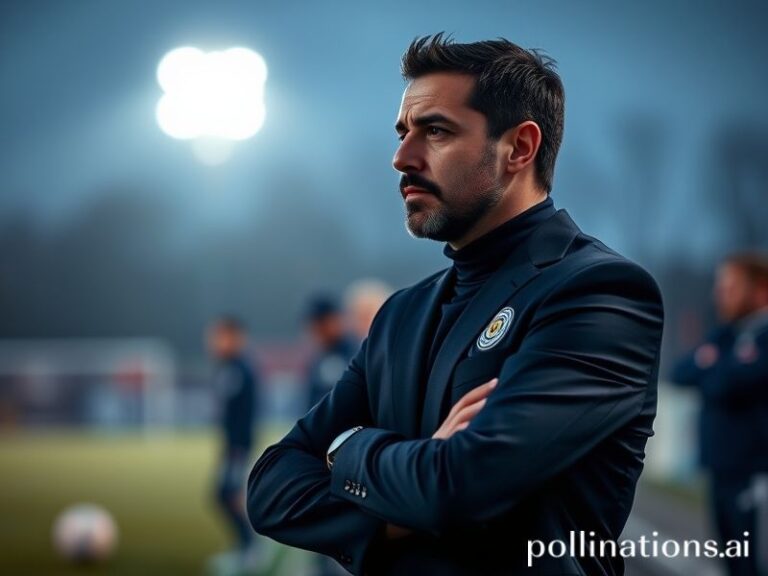Dortmund vs Wolfsburg: Bundesliga’s Global Shadow Play Where Nothing Matters and Everyone Watches
Dortmund vs Wolfsburg: A Bundesliga Fixture That Pretends It Matters to the Wider World
Dave’s Locker | International Desk
The Ruhr sun—filtered through the usual industrial haze—rose this Saturday as if the planet hadn’t just spent another week sliding toward irreversible climate, financial, and moral bankruptcy. Still, 81,365 souls crammed into Signal-Iduna-Park to watch Borussia Dortmund host VfL Wolfsburg, proving once again that Homo sapiens will queue for anything if you add beer, drums, and a scoreboard. For the rest of us, scattered across time zones from Lagos to Lima, the match streamed on phones held together by cracked screens and existential dread.
On paper, it is merely Bundesliga matchday 29, a mid-table shrug-off between fifth-placed Dortmund and twelfth-placed Wolfsburg. Yet in the global attention economy, even a regional scuffle is packaged as geopolitical theatre. Chinese Super League rights-holders splice in drone shots of the Yellow Wall to suggest grassroots authenticity; American gamblers micro-bet on whether Jude Bellingham tweets during the game; Indian fantasy apps rank “expected nutmegs per 90.” The fixture has become a Rorschach blot onto which every nation projects its neuroses.
Germany itself would rather not look too closely. Dortmund’s club motto, “Echte Liebe” (True Love), sounds almost sarcastic when the squad’s star striker has been photoshopped onto a Dubai real-estate brochure since breakfast. Meanwhile Wolfsburg, literally the company team of Volkswagen, continues to play inside a stadium built by a carmaker that spent years cheating on emissions tests. If irony burned calories, the Bundesliga would be the slimmest league in Europe.
Kick-off approaches, and the commentary boxes fill with polyglot experts pretending that tactical tweaks—“Can Kobel sweep higher to compress the half-spaces?”—will influence anything beyond the next seven seconds. In reality, Dortmund’s season hinges on whether their sporting director can convince a hedge-fund in Delaware that a teenager with one good thigh muscle is worth €100 million. Wolfsburg’s hopes rest on persuading a striker who still uses a Blackberry that Lower Saxony is preferable to the Qatari second division.
The match begins. Within three minutes, Sebastiaan Bornauw—whose surname sounds like a minor Scandinavian tax haven—concedes a penalty. Marco Reus converts, and Twitter’s algorithm instantly tailors the highlight for Indonesian audiences with a Nike swoosh and the caption “Dream Crazy.” Somewhere in Buenos Aires, a fan watching on a cracked laptop misses the goal because an ad for a German language course pops up: “Learn to say ‘Gegenpressing’ in 30 days or your money back.”
By halftime the score is 2-1 to Dortmund, and the global implications are as follows: absolutely none, unless you count the fractional movement of in-play betting lines in Manila. Still, the Bundesliga’s international feed cuts to a montage of fans in Nigeria painting their faces yellow and black, an image that conveniently ignores the league’s complete lack of African ownership despite the continent supplying most of its elite athletic labor.
The second half meanders like a UN resolution. Wolfsburg equalize through a set piece, prompting their bench to celebrate as if they’ve discovered a new vaccine rather than a loose-marking scheme. Dortmund respond by throwing on a 17-year-old whose previous employment was homework. The kid immediately nutmegs two opponents, sending statisticians into raptures and crypto-bros scrambling to mint an NFT of his shoelaces.
Final whistle: 2-2. Both sets of players applaud empty stands—because even when full, modern stadiums feel spiritually vacant—and the international feed signs off with a cheery “See you next week.” In the metaverse, a virtual Yellow Wall continues bouncing forever, a perpetual motion machine of simulated passion. Back on Earth, the planet rotates on its axis, indifferent to whether Dortmund qualifies for the Champions League or Wolfsburg avoids a relegation playoff.
Yet there is something oddly reassuring in the whole charade. In an age when billionaires race to leave the planet and algorithms decide elections, 22 millionaires kicking a ball in a coal-dust city still manages to hijack the global bandwidth for two hours. Perhaps that is the true victory: not the scoreline, but the fact that we all agreed—just for a moment—to care about something so gloriously, pointlessly human. The world will end, but first, the post-match press conference.

